 



Weather data
A large number of automatic weather stations has been implemented in the frame of the BIOTA AFRICA project by the Namibian National Botanical Research Institute (NBRI) and the Group "Biodiversity, Evolution and Ecology" (BEE) of the University of Hamburg. The website offers hourly updates of data and graphs of a large number of weather parameters.

|
Climate change
| The uncertain future of Africa's biodiversity (Show animation) |
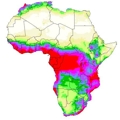
Recent |
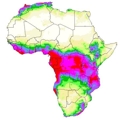
2020 |
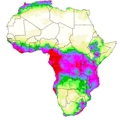
2040 |
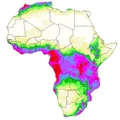
2060 |
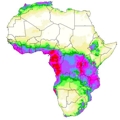
2080 |
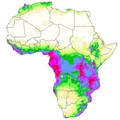
2100 |
 |
Possible Impact of Future Climate Change on Plant Diversity in Africa.
J.H. Sommer et al. (in prep.), BIOTA AFRICA, Nees Institute for Biodiversity of Plants, University of Bonn, Germany
|
 "heute" - ZDF (11. Dezember 2007)
Media echoe during Bali climate change conference - BIOTA AFRICA as related to climate change research
Video
|
|




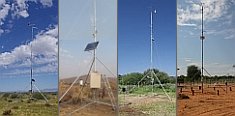


 Go to the WeatherNet
Go to the WeatherNet




